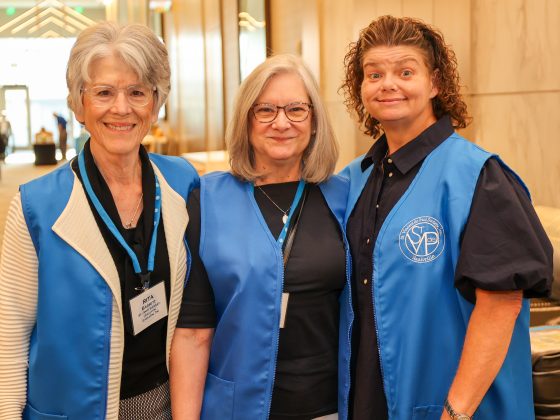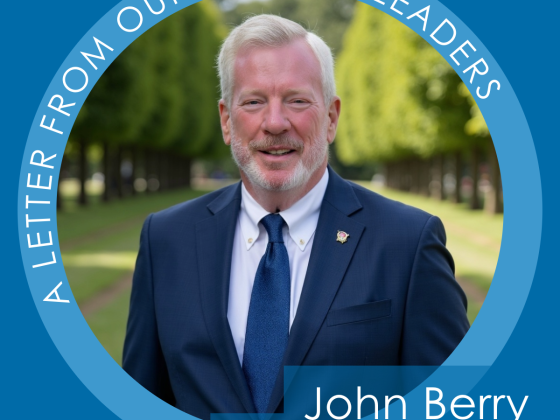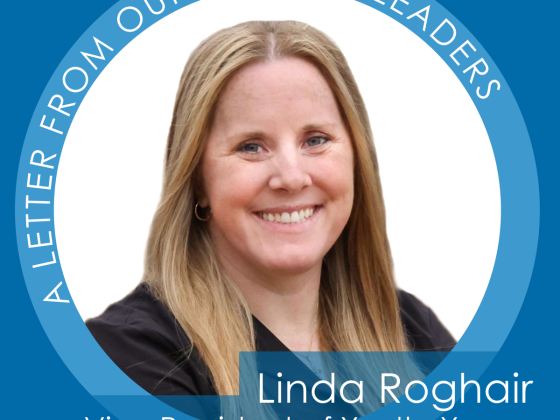I once drove my AP English teacher Ms. Alvarez a bit crazy. She had just assigned us each to write a 2000-word essay on some subject I have blissfully forgotten. At a break, I privately asked her why we had a minimum word requirement. Could I submit fewer words if I conveyed my message in a shorter essay? After her shock subsided, she said that the word count was needed to make us better writers. I replied that I was actually more interested in being a better communicator. Wouldn’t making my point more concisely be a better career skill unless I had a job where I was paid by the word? She agreed to think about it, but meanwhile, start writing, bucko.
The next day she agreed to my odd request but warned that if I didn’t make my points well, then wasting those available words would lower my grade. Fair enough, I thought, and agreed to her other term that I couldn’t tell the other students about our agreement. Maybe she was the one getting paid by the word – ours!
As Vincentians we are blessed with a long and successful history. We benefit from the work, policies, and traditions that precede our Society experience. Yet we still owe it to ourselves, and especially to those we serve, to ask if any of it should change. I don’t suggest radical revolution, but thoughtful discernment into why we do what we do, and especially why “we have always done it this way.”
Indeed, every human advancement, innovation, and invention started with question “why,” or its corollary, “why not.” We learn the question when very young, asking “Why?” in response to every answer from our parents until natural curiosity is replaced with begrudging acceptance either of “Because I said so,” or “Never mind, just eat those carrots!” We slowly learn to just get along and agree to things the way they are.
Change often comes from major disruptions. New thinking is required to react to some new threat, such as competition or a lost resource. Some brave souls on their own break the bonds of sameness and innovate or create. They must deal with those who fear and resist change, and those who agree with the change but don’t want to do any extra work required to effect it. That’s why we say “Change is tough. You go first!”
Soon we will have a new National President and new National Council Board of Directors. Every year, between one-third and one-sixth of our Councils also have new local Presidents. Leadership change is a natural time in which to consider – not always change – how we operate, how we govern, and even how we pray as the Society. It’s a healthy process when we do it together. It can be disastrous when left to individuals! Operating through consensus gives us better opportunities to hear all views, and to understand the reasons why we operate as at present.
Often, radical change is unnecessary and more traumatic to the system than continuous improvement, or at least continuous evaluation. Our Councils and Conferences can usually absorb change more easily than experiencing a sudden stop and re-start. This is crucial when intending to keep serving our neighbors in need during any change cycle. They should not suffer from our change process; in fact, whenever possible we want them to be the beneficiaries!
Whether you are a leader or a member of your Conference, sit back with a cold summer beverage and ponder. What could we do better? How can the Society attract more members to grow spiritually, or serve more people in need, or create better opportunities for friendships when we meet? If these Essential Elements are too weighty at first, start smaller. How can we make our Conference meetings more effective, or fun? Why do we have that process to do whatever it is that bugs you right now? How can we be a better voice, or provide a better voice, for the poor?
How will we celebrate our asking? How do we make questioning a positive experience for ourselves and our fellow members? How can we together question backward to improve our Vincentian lives forward?
Please be cautioned that when exploring why we have such Society rules and customs, we might just find that our founders and later leaders had it right! Affirmation that we are doing the best we can is an important element of a successful evaluative process.
I usually aim for 800 words for these Servant Leader columns. This week I didn’t need them all. Please don’t tell Ms. Alvarez!
Yours in Christ,
Dave Barringer
CEO




Why is the beginning! Thanks Dave!
(6 words)